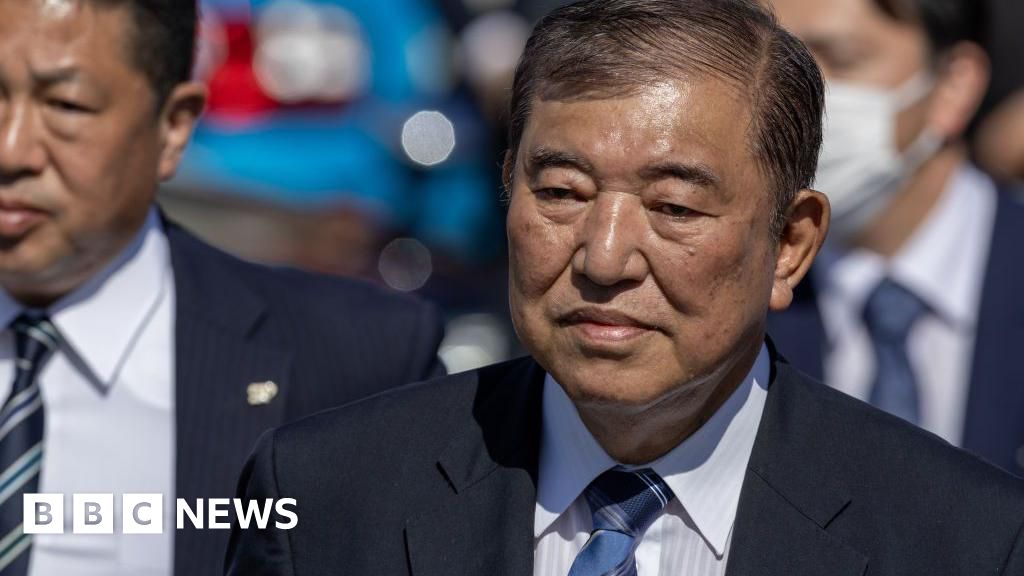The election was called by the LDP’s new leader Shigeru Ishiba three days after he was selected as new leader – before he had been officially sworn in as prime minister.
It comes after a tumultuous few years for the LDP which saw a “cascade” of scandals, widespread voter apathy and record-low approval ratings.
The party had seen approval ratings of below 20% earlier in the year, in the wake of a political fundraising corruption scandal.
Yet opposition parties have failed to unite, or convince voters they are a viable option to govern.
The main opposition party had an approval rating of just 6.6% before parliament was dissolved.
“It is so hard to make decisions to choose parties, I think people are losing interest,” Miyuki Fujisaki, a long-time LDP supporter who works in the care-home sector, told the BBC ahead of polls opening.
The LDP, she said, has its problems with alleged corruption, “but the opposition also does not stand out at all”.
“They sure complain a lot, but it’s not at all clear on what they want to do,” the 66-year-old said.
For all the apathy, politics in Japan has been moving at a fast pace in recent months.
Shigeru Ishiba took over as prime minister after being voted in by the ruling party following his predecessor Fumio Kishida – who had been in the role since 2021 – making a surprise decision to step down in August.
The move to call the election came at a time when the LDP is desperate to restore its tarnished image among the public. Ishiba – a long-time politician who previously served as defence minister – has described it as the “people’s verdict”.
A series of scandals has tarnished the ruling party’s reputation. Chief among them is the party’s relationship with the controversial Unification Church – described by critics as a “cult” – and the level of influence it had on lawmakers.
Then came the revelations of the political funding corruption scandal. Japan’s prosecutors have been investigating dozens of LDP lawmakers accused of pocketing proceeds from political fundraising events. Those allegations – running into the millions of dollars – led to the dissolution of powerful factions, the backbone of its internal party politics.
“What a wretched state the ruling party is in,” said Michiko Hamada, who had travelled to Urawa station, on the outskirts of Tokyo, for an opposition campaign rally.
“That is what I feel most. It is tax evasion and it’s unforgivable.”

